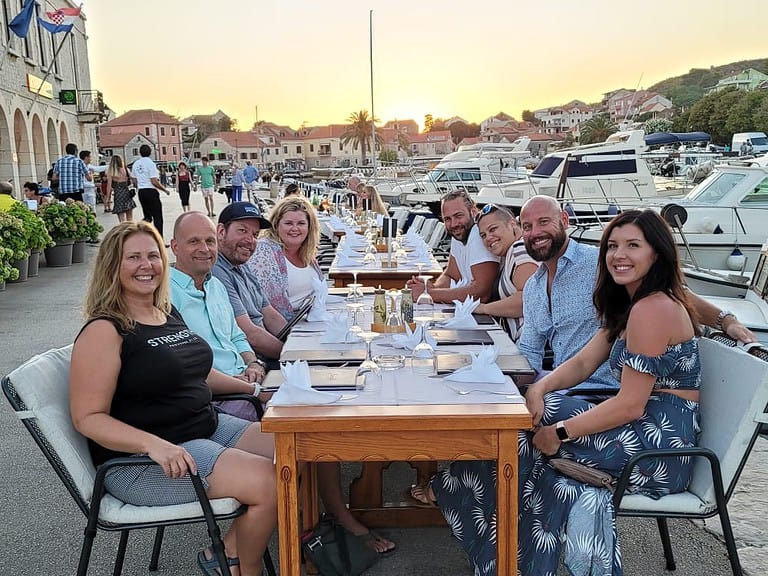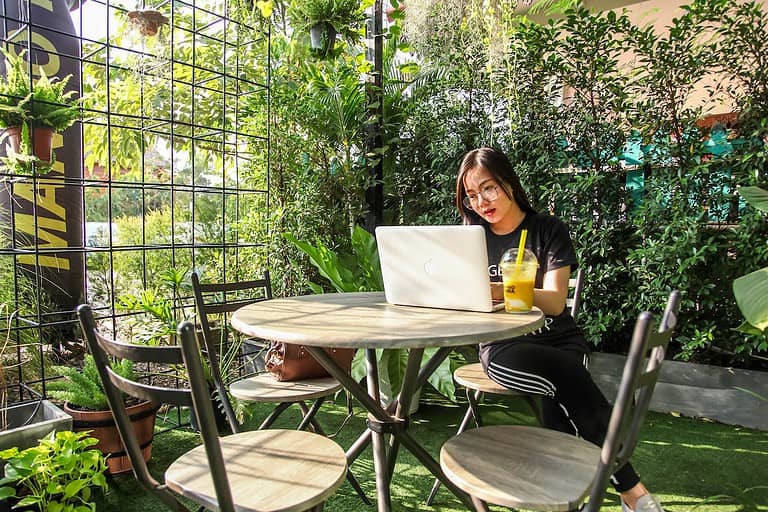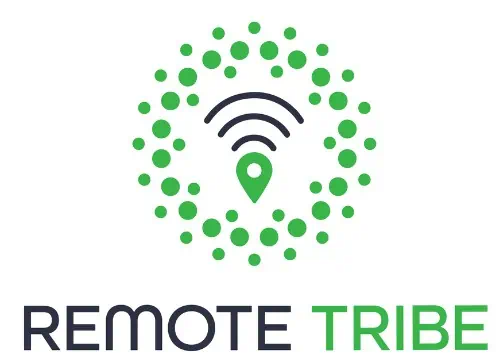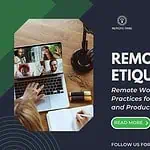The New Era of Remote Work
In today’s modern working environment, the boundaries between work and leisure are increasingly blurring, giving rise to innovative work-life balance concepts. Among these, “workation,” a blend of ‘work‘ and ‘vacation,’ emerges as a transformative approach to how we understand and integrate our professional responsibilities with our need for relaxation and exploration.
This concept, which allows individuals to work remotely from scenic or inspiring destinations, is not just a trend but a reflection of a meaningful shift in modern work culture. As we delve into the world of workations with an expert named Kristie Sullivan, we explore how this flexible arrangement redefines productivity, creativity, and personal fulfillment in the workplace.
Join us as we explore the world of workations, where the experience of travel meets the commitment of work, creating a great blend that inspires the modern workforce.
If you want to transition into the remote working lifestyle, then keep on reading, we’ve got a few great tips for you.
Table of Contents
So what's the meaning of a "Workation"?

A workation, a combination of the terms “work” and “vacation,” is a modern concept that combines the frantic pace of a vacation with the responsibilities of work. Particularly in the age of digital nomadism and remote work, when technology allows people to work from almost anywhere in the world, this approach has become incredibly popular.
Essentially, the purpose of a workation is to provide a different workspace to the conventional office or home. It typically involves travelling to a location that offers a restful or inspirational setting along with the amenities and connectivity required for efficient work. A workationhttps://www.remotetribe.life/remote-working/what-is-workation-meaning/ enables people to carry on with their professional duties, frequently with a more flexible schedule, while also enjoying the advantages of a vacation-like atmosphere. This is in contrast to a conventional vacation, which involves completely disengaging from work.
The balance it creates between work and play is one of a workation’s primary characteristics. It encourages people to include leisure activities into their workdays, such as going on excursions, learning about the local way of life, or touring.
The rise of workations also reflects a broader shift in work-life balance, emphasizing the importance of flexibility, well-being, and the integration of work with personal life experiences.
The Concept of Workations
The concept of ‘workation’ is thoroughly explored. Combining work and vacation offers a refreshing alternative to traditional work environments. This arrangement allows people to work remotely from new and exciting locations, extending their stay beyond a typical vacation length. It’s a lifestyle choice that brings together professional responsibilities and personal interests in a balanced manner.
Kristie Sullivan's Journey from Corporate to Remote

Kristie Sullivan, from Executive Remote Worker a seasoned professional with two decades in the corporate world, tells about her transformative journey. Her initial dream of traveling was sidelined by the comforts and routine of corporate life. The turning point, a personal midlife reevaluation, led her to rethink her approach to work and life. Kristie's story is an inspiration to many who feel tethered to traditional career paths but yearn for more travel and freedom. She tells us how she made the transition and what motivated her to organize workations.
Get in touch with Kristie:
Advantages of Workations

Workations offer a plethora of benefits. For employees, they present an opportunity to escape the daily grind and rejuvenate creatively in new settings. It’s a chance to experience different cultures, cuisines, and lifestyles while keeping up with work.
One of the benefits of a workation is the opportunity to learn a new language, such as korean and korean grammar, while immersing yourself in a new culture like South Korea.
For employers, the benefits include higher employee morale, enhanced productivity, and the ability to attract and retain top talent by offering a more flexible work environment.
Overcoming Challenges and Embracing Opportunities
Transitioning to a workation lifestyle is not without its challenges. There are concerns like maintaining job security and managing work expectations while traveling.
It’s important to have or start to build robust time and life management skills to successfully balance work and leisure.
Navigating Job Security and Remote Work Dynamics
A primary concern for many considering workations is job security. With remote work still being a relatively new concept in some industries, there’s often apprehension about how it will impact job stability and career progression.
There are some strategies to mitigate these concerns, such as maintaining clear communication with employers, demonstrating productivity while remote, and setting clear boundaries to ensure work quality is not compromised. It’s also important to build trust with employers by showing that remote work can enhance, rather than hinder, job performance.
Balancing Work and Travel in a Workation
Another challenge lies in finding the right balance between work responsibilities and the allure of new environments. Kristie shares her approach to time management, highlighting the need for discipline and planning. She suggests establishing a routine that accommodates work tasks while leaving ample time to explore and relax. This could include setting specific work hours, using productivity tools, and being mindful of time zone differences to sync with team schedules.
Technological and Connectivity Considerations
In today’s connected world, a stable internet connection is vital for successful workation. Kristie mentions the importance of researching the connectivity infrastructure of a destination before arrival. She also touches on the necessity of having backup plans, like portable Wi-Fi devices, to avoid disruptions in work due to connectivity issues.
Cultural Adaptation and Local Engagement
Embracing local cultures and communities is a significant part of the workation experience. There is an enriching aspects to immersing oneself in different cultural settings. Learning basic phrases of the local language, understanding local customs, and engaging with the community can definitely help and expand one’s mind.
This not only enhances the travel experience but also opens up opportunities for new perspectives and ideas that can be beneficial in one’s professional life.
Mental and Physical Well-being
The mental and physical aspects of adapting to a new environment while maintaining work responsibilities are crucial.It’s important to have self-care routines, including regular exercise, healthy eating, and ensuring adequate rest. Kristie notes that neglecting personal well-being can quickly lead to burnout, which defeats the purpose of a workation.
The Role of Companies in Facilitating Workations
Companies are increasingly adopting remote work policies, including offering workations as part of their employee benefits. This shift not only supports employee well-being but also positions these companies as forward-thinking and adaptive in the modern work environment.
Embracing New Cultures: Traveling in the Balkans
Kristie shares her firsthand experience in organizing group workations, including her innovative sailing trip in Croatia. She provides insights into the planning process and the unique aspects of organizing travel experiences that are both productive and relaxing. Her expertise highlights the value of professional planning in ensuring a seamless workation experience.
One of the initial challenges in the Balkans can be language barriers. Kristie shares her experiences navigating new languages and how even learning a few basic phrases can greatly enhance interactions with locals. They talk about the importance of body language and non-verbal cues in communication and recommend language learning apps and local guides as valuable resources for deeper engagement.
The Balkans are home to a wealth of historical sites and natural wonders. From the ancient Roman ruins scattered across the region to the pristine beaches and rugged mountains, there is much to explore. Kristie speaks about balancing work commitments with explorations of these sites. She emphasizes how such experiences not only enrich the workation but also provide a deeper understanding of the region’s history and geography.
Understanding and respecting the cultural nuances of Balkan countries is crucial. The importance of being culturally sensitive, especially given the region’s complex history. They advise on the need to be aware of local customs and traditions and how showing respect can lead to more authentic and meaningful interactions with locals.

Working from cafes has become extremely popular, especially for Millenials and Gen-Zs.
Culinary Adventures in the Balkans
The cuisine of the Balkans, with its diverse influences, is a highlight for many travelers. Kristie shares her culinary adventures, from sampling traditional dishes like cevapi and burek to exploring local markets for fresh produce. The food is a gateway to understanding local culture and encourages trying local specialties and dining at places frequented by locals.
Building Connections and Community
Traveling in the Balkans offers opportunities to build new connections and be part of a community. Kristie talks about her experiences interacting with local entrepreneurs, digital nomads, and other travelers. Such connections can lead to collaborations, friendships, and a deeper sense of belonging, even in a foreign land.
Reflecting on Historical Contexts
The Balkans have a rich yet tumultuous history, which is reflected in their architecture, museums, and memorials. There is significance in understanding this historical context, as it adds depth to the travel experience. Kristie recommends visiting museums and historical sites and engaging with locals to gain insights into the region’s past.
Embracing Change and Personal Growth
Traveling in the Balkans, with its unique challenges and rewards, can lead to significant personal growth. Navigating a new culture and how these experiences contribute to a broader worldview, greater empathy, adaptability, and resilience.
Final thoughts
In conclusion, The notion of a workation signifies a significant progression in the contemporary work environment, providing a well-balanced combination of productivity and recreation. For those who adopt it, it not only transforms the conventional workspace but also enhances their personal and professional lives. In the ever-connected world we live in today, workations are a reminder to the countless ways we may combine our professional lives with our never-ending need for exploration and novel experiences. They serve as a reminder that creating a lifestyle that maximises the positive aspects of both work and play rather than forcing one to choose between the two is the path to a happy existence.
As this trend gains momentum, it encourages us to reconsider how we approach our work, pushing us to travel and escape the workplace while maintaining our productivity and connections.









